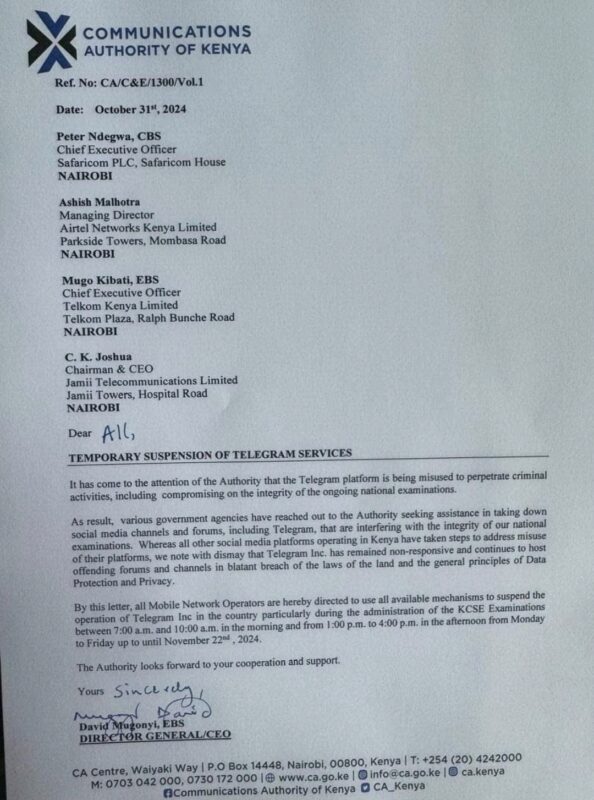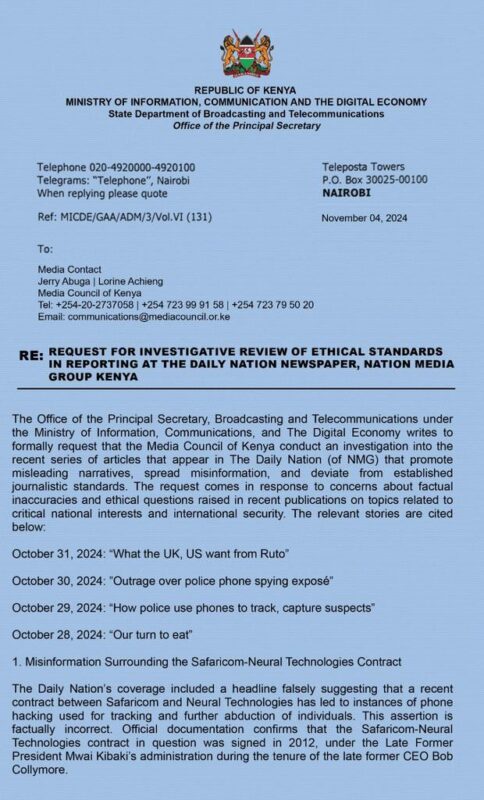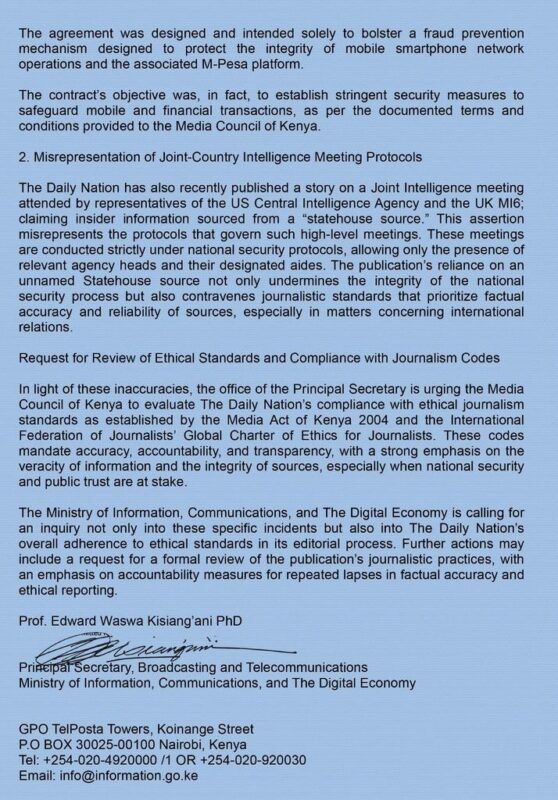Is Kenya radically changing how it handles regulatory decisions and enforcement action in the ICT and media space? In recent months, industry players have raised questions on the actions taken by the ICT Ministry officials, the regulator (Communications Authority of Kenya) and the taxman (Kenya Revenue Authority).

There have been no less than ten actions that have raised eyebrows among stakeholders. Some of them are highlighted below:
Suspension of Telegram app services
In a letter to four MNOs and ISPs dated 31st October 2024, the regulator instrucyed the operators to suspend the Telegram services over claims of its misuse by criminals generally and in it’s use in compromising the examinations. The suspension is scheduled to end on 22nd November 2024 after the end of the national examinations.
Revoked Telecoms and Broadcast Licences
The Communications Authority of Kenya (CA) revoked the licenses of 426 media and telecommunications service providers. This action targets a significant portion of Kenya’s licensed operators, signaling the CA’s increased focus on enforcing compliance and protecting consumers. As Kenya’s communications industry continues to grow—recording an estimated 10% annual growth in internet and mobile subscriptions in 2023 — the CA’s decision highlights the necessity for strict adherence to standards in a sector where competition and service quality are paramount. This article (by BDO East Africa) explores the CA’s motivations, the broad impact on the industry and consumers, and expert insights on the implications for Kenya’s digital and communications future.
Ministry letter to the Media Council of Kenya
Eyebrows were raised when a strongly worded letter was sent from MoICDE to Media Council on 4th November 2024 demanding investigation of ethical standards in response to media reports on abuse of surveillance by government agencies and Mobile network providers (MNOs). In the letter, the Permanent Secretary for Broadcasting and Telecommunications accused the National Media Group of spreading misinformation on over the fraud prevention system used by Safaricom and misrepresentation of proceedings of intelligence meetings.


The letter demanded that the Media Council should consider extending their reponse beyond the specific alleged violations to include a formal review of “the publication’s journalistic practices”.
Threats to Media Houses
In June 2024, media houses reported cases of threats from government for their reporting on political activities including the protests against the infamous Finance Bill 2024. Apart from a live report on television, journalists staged protests against threats to the freedom of the press and against attacks by the police.
° Blocking of betting websites are BCLB
° Alleged Internet shutdown in June 2024 via inexplicable submarine downtime
° Planned use of algorithms to surveil transactions and conduct tax assessments automatically (refer to David Ndii’s advice to KRA)
° High Court ruling preventing advertising on Opera browser speed dis. The case instigated by COFEK in an apparent response to debt disputes with a Kenyan gambling firm.

